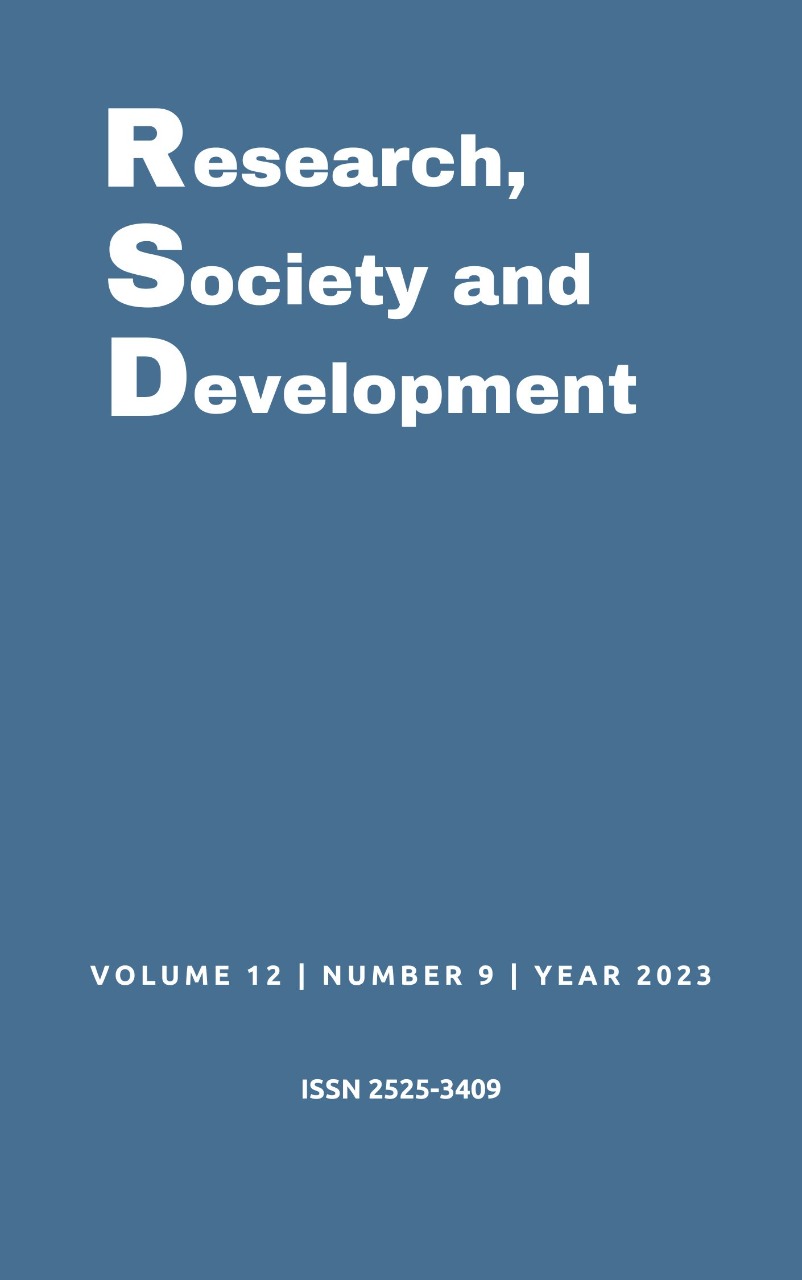The transformation of teaching practice through the use of digital tools in higher middle education
DOI:
https://doi.org/10.33448/rsd-v12i9.43078Keywords:
Digital tools, Transformation, Education.Abstract
The future of education is changing, so teacher training is necessary to ensure the use and use of available digital tools. The objective of this research is to know and analyze how digital tools have transformed teaching practice at the upper secondary level through the use of ICT/TAC/TEP by teachers. A methodological design of this exploratory-descriptive and transactional research was used since it has a theoretical section that supports the base constructs of this research, this part was carried out through a review of the literature in reliable sites, scientific articles and verified sites to have theoretical bases in the integration of TIC/TAC/TEP with the technological development, communicative pedagogy, administration and investigation. As well as counting new ways of carrying out learning in upper secondary education in a different way, counting teaching practices based on technology in a flexible way with a technological articulation oriented towards educational innovation.
References
Belloch, C. (2012). Las Tecnologías de la Información y Comunicación en el Aprendizaje. Departamento de Metodos de Investigacion y Diagnostico en Eduacioón., 1–9.
Bustamante Meza, L., & De Lima Rodríguez, K. (2020). Nivel de competencias TIC de docentes de preescolar. Infancias Imágenes, 19(1), 83–90. https://doi.org/10.14483/16579089.13936
Cabero Almenara, J. (2007). Las necesidades de las TIC en el ámbito educativo: oportunidades, riesgos y necesidades. Tecnología y comunicación educativas, 21(45), 4–19. https://doi.org/Año 21, No. 45
Chero, A. (2018). TIC,TAC,TEP,TIP,TRNA.
Dolores Reig Hernández. (2010). El futuro de la educación superior: Algunas claves. REIRE. Revista d’Innovació i Recerca en Educació, 3(2), 98–113. http://revistes.ub.edu/index.php/REIRE/article/view/2488%5Cnhttp://www.raco.cat/index.php/REIRE/article/view/196168/263002
Enríquez, S. (2012). Luego de las TIC , las TAC. Tesis de posgrado. Facultad de Humanidades y Ciencias de la Educación, Escuela de Lenguas Universidad Nacional de La Plata. 1–12.
Espinoza, R., Rodriguez, R., & Olvera, M. G. (2017). El uso de las TIC, TAC, TEP, para desarrollar competencias empresariales y comunicativas en los estudiantes universitarios. TECSISTECAL, 21.
Latorre, E., Castro, K., & Potes, I. (2018). Las TIC, LAS TAC y las TEP. En Universidad Sergio Arboleda. www.usergioarboleda.edu.co
Lozano, R. (2011). De las TIC a las TAC: tecnologías del aprendizaje y del conocimiento. Anuario ThinkEPI, 5(1), 45–47. https://dialnet.unirioja.es/servlet/articulo?codigo=3647371
Marcia, G., Mónica, O., & Coronel, P. P. (2020). Desafío del Siglo XXI en la educación: dando saltos del TIC-TAC al TEP. Revista Scientific- Ensayo Arbitrario, 5, 323–344.
Martinez, O. (2016). Programa de Formación Docente de las Tecnologías del Aprendizaje y el Conocimiento (Tac) en la Universidad Pedagógica Experimental Libertador Núcleo Barinas (Venezuela). Scientific American, 1(1), 90–114. https://medium.com/@arifwicaksanaa/pengertian-use-case-a7e576e1b6bf
Pinto, A. . C., Díaz, J., B., R., Atrio, S., & Alfaro, C. (2014). Formación construccionista en tecnología educativa sobre el desarrollo espiral de las competencias TICTACTEP.
Pinto, A., & Diaz, J. (2015). Convivencia escolar en la era de la Hiperconectividad. Revista Electrónica Educare, 6(1), 149–164.
Pinto Santos, A. R., Cortés Peña, O., & Alfaro Camargo, C. (2017). Hacia la transformación de la práctica docente: modelo espiral de competencias TICTACTEP. Pixel-Bit, Revista de Medios y Educación, 51, 37–51. https://doi.org/10.12795/pixelbit.2017.i51.03
Pscitelli, A. (2012). Nativos digitales. Revista ICONO14. Revista científica de Comunicación y Tecnologías emergentes, 7(1), 1. https://doi.org/10.7195/ri14.v7i1.494
Reig, D. (2012). Zonas de desarrollo próximo, Entornos Personales de Aprendizaje e Internet como derecho fundamental. Reflexiones Iberoamericanas sobre las TIC y la educación, 120–122.
Reig, D. (2019). TIC.TAC.TEP. Documento Online. http://www.dreig.eu/caparazon/2011/10/11/tic-tac-rep/
Reig Hernández, D., & Fretes Torruella, G. (2010). Identidades digitales: límites poco claros. Cuadernos De Pedagogía, 418, 4.
Sánchez-González, M., & Alonso, J. (2012). Propuesta metodológica para el análisis de las tecnologías de participación en cibermedios. Revista Latina de Comunicación Social, 67, 1–31. https://doi.org/10.4185/RLCS-067-951-148-178
Villarreal-Villa, S., García-Guliany, J., Hernández-Palma, H., & Steffens-Sanabria, E. (2019). Competencias Docentes y Transformaciones en la Educación en la Era Digital. Formación universitaria, 12(6), 3–14. https://doi.org/10.4067/s0718-50062019000600003
Downloads
Published
Issue
Section
License
Copyright (c) 2023 Víctor Béjar Tinoco; Flor Madrigal Moreno; Salvador Madrigal Moreno; Isaid Campa Dominguez

This work is licensed under a Creative Commons Attribution 4.0 International License.
Authors who publish with this journal agree to the following terms:
1) Authors retain copyright and grant the journal right of first publication with the work simultaneously licensed under a Creative Commons Attribution License that allows others to share the work with an acknowledgement of the work's authorship and initial publication in this journal.
2) Authors are able to enter into separate, additional contractual arrangements for the non-exclusive distribution of the journal's published version of the work (e.g., post it to an institutional repository or publish it in a book), with an acknowledgement of its initial publication in this journal.
3) Authors are permitted and encouraged to post their work online (e.g., in institutional repositories or on their website) prior to and during the submission process, as it can lead to productive exchanges, as well as earlier and greater citation of published work.


